LIDOCAINE JELLY - MUCOUS MEMBRANE
PHONETIC PRONUNCIATION: (LYE-doe-kane)
COMMON BRAND NAME(S): Xylocaine
GENERIC NAME(S): lidocaine HCl
Uses
USES: This medication is used to prevent and relieve pain during certain medical procedures (such as inserting a tube into the urinary tract). It is also used to numb the lining of the mouth, throat, or nose before certain medical procedures (such as intubation). Lidocaine jelly is also used to relieve pain caused by swelling of the urinary tract (urethritis). It works by numbing certain areas of the body that are moist. Lidocaine belongs to a class of drugs known as local anesthetics.
How to use LIDOCAINE JELLY - MUCOUS MEMBRANE
HOW TO USE: Read the Patient Information Leaflet if available from your pharmacist before you start using lidocaine and each time you get a refill. If you have any questions, ask your doctor or pharmacist. This medication is usually applied by a health care professional to the area being treated or to the medical equipment used during a medical procedure. It is usually applied just before your procedure. If you are using this medication at home, learn all preparation and usage instructions from your health care professional and the product package. Follow your doctor's instructions carefully. Clean the affected area before use, if possible, and apply with clean hands as directed. Avoid getting this medication in your eyes. Wash your hands after use. Throw away any unused jelly after first use. The dosage is based on your medical condition and response to treatment. In children, the dosage is also based on age and weight. Do not use more than 4 doses in a 24-hour period. Do not increase your dose or use this drug more often or for longer than prescribed. Doing so can increase your risk of serious side effects. When this medication is used in the mouth or throat, numbness may make swallowing difficult and increase your risk of swallowing the wrong way or choking. Do not chew gum or eat for 1 hour after using this product and while your mouth or throat is numb. It is especially important for children to not eat or chew gum for at least 1 hour after their procedures. Be careful not to accidentally bite your tongue or mouth. Lidocaine starts to numb the affected area within 5 minutes after application. If you are using this product before certain procedures, tell your doctor if the area does not feel numb or the numbness does not go away. If you are using this product to relieve pain/discomfort, tell your doctor if your condition lasts or gets worse.
Side Effects
Precautions
Interactions
Overdose
Images
Reviews
Faq for LIDOCAINE JELLY - MUCOUS MEMBRANE
Lidocaine Jelly is used as a local anesthetic to numb the mucous membranes, such as the mouth, throat, or vagina, to relieve pain or discomfort during medical procedures or examinations.
Lidocaine Jelly works by blocking nerve signals in the area where it is applied, temporarily numbing the mucous membranes and reducing pain or discomfort.
Lidocaine Jelly is generally safe to use when used as directed. However, it may cause some side effects such as itching, irritation, or a burning sensation. Serious side effects are rare but can occur, so it is important to use Lidocaine Jelly under the guidance of a healthcare professional.
Lidocaine Jelly should be applied directly to the affected area or as directed by your healthcare professional. It is important to follow the instructions provided with the medication or follow your doctor's advice for the correct dosage and application method.
The duration of the numbing effect may vary depending on the individual and the specific procedure or condition being treated. Typically, the numbing effect of Lidocaine Jelly lasts for about 30 minutes to 1 hour.
Lidocaine Jelly should be used during pregnancy or breastfeeding only if recommended by a healthcare professional. It is important to discuss the potential risks and benefits with your doctor before using Lidocaine Jelly in these situations.
Lidocaine Jelly may be used for children, but the dosage and application should be determined by a healthcare professional. It is important to follow the guidance of a doctor when using Lidocaine Jelly for children.
Lidocaine Jelly may interact with certain medications. It is important to inform your healthcare professional about all the medications, supplements, or herbal products you are currently taking to avoid any potential drug interactions.
Yes, Lidocaine Jelly can be used for oral or dental procedures to numb the gums or other oral tissues. However, it should only be used under the guidance of a dental professional or healthcare provider.
Disclaimer
IMPORTANT: HOW TO USE THIS INFORMATION: This is a summary and does NOT have all possible information about this product. This information does not assure that this product is safe, effective, or appropriate for you. This information is not individual medical advice and does not substitute for the advice of your health care professional. Always ask your health care professional for complete information about this product and your specific health needs.
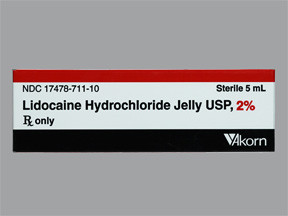
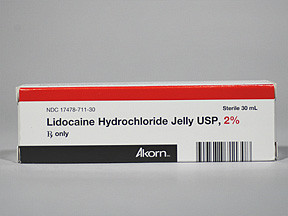
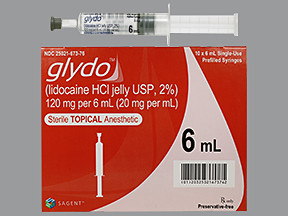
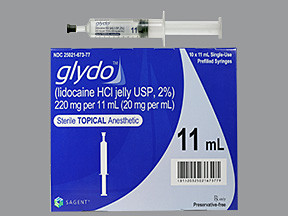
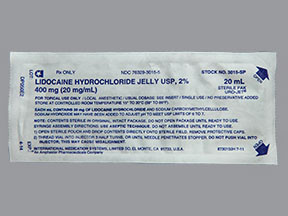
No Reviews Yet